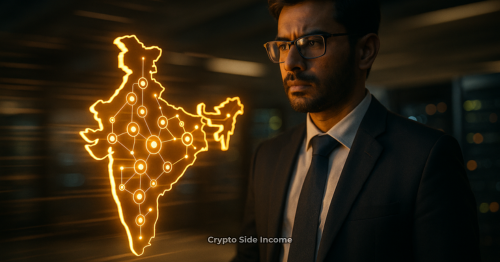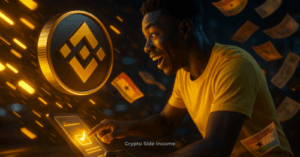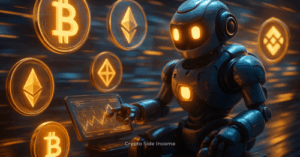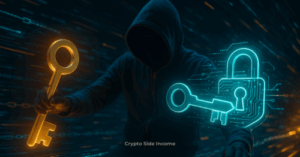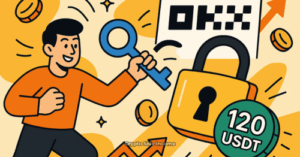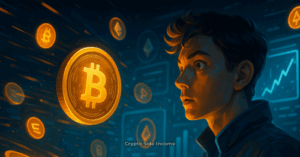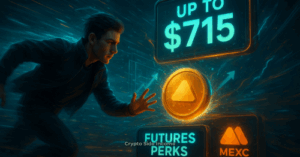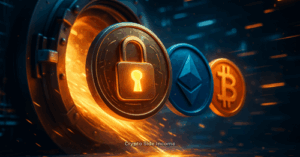In India’s rapidly expanding digital and crypto economy, What Is DAO is becoming a highly relevant question for developers, investors, entrepreneurs, and community leaders. A DAO, or Decentralized Autonomous Organization, is a revolutionary model that removes centralized leadership and enables democratic, trustless governance using blockchain technology.
What Is DAO is no longer just a theoretical question. In India, where digital innovation is accelerating, DAOs are increasingly used for decentralized finance, community governance, startup funding, and rural innovation projects. These smart contract-driven organizations could reshape how Indians collaborate, manage resources, and make decisions online.
What Is DAO?
The answer to What Is DAO begins with understanding its foundation. A Decentralized Autonomous Organization is a digitally native organization run by code, not by a central figure or board of directors. Built on blockchain networks like Ethereum or Polygon, DAOs use smart contracts to automate decisions and processes.
In a DAO, governance is decentralized. Token holders propose and vote on key actions, and approved decisions are executed automatically by smart contracts. This model creates a transparent and secure way to manage projects, money, and strategy.
In the Indian context, What Is DAO has become especially relevant for grassroots funding, open-source software, digital cooperatives, and decentralized social impact projects.
How Does a DAO Work?
Understanding What Is DAO means understanding how it operates:
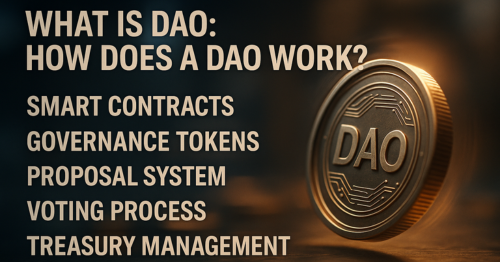
- Smart Contracts: These contracts contain the DAO’s rules and execute decisions based on consensus without manual intervention. (Read All About: Smart Contracts)
- Governance Tokens: Users hold tokens that represent voting power.
- Proposal System: Members can submit ideas or proposals for funding, product changes, or partnerships.
- Voting Process: Token holders vote, and once a majority or quorum is met, the contract executes the action.
- Treasury Management: DAOs manage a digital treasury that is controlled by collective decisions, not a central authority.
These structures give every participant a voice and reduce dependence on traditional bureaucracy, which is why more Indians are asking What Is DAO when exploring new governance models.
Why DAOs Matter for India
India has a huge opportunity in the Web3 revolution, and understanding What Is DAO is critical to that transformation. DAOs can help address challenges of trust, transparency, and inclusive decision-making in various sectors.
Transparency
Since all transactions and votes are recorded on the blockchain, DAOs create accountability and trust. This is a major advantage in Indian systems, where corruption and lack of transparency have been long-standing issues.
Inclusivity
A DAO allows anyone with internet access and a digital wallet to join and participate. This aligns perfectly with India’s Digital India mission, especially in empowering youth and rural communities.
Grassroots Governance
What Is DAO is a key question in sectors like agriculture, microfinance, and education. For example, a DAO could manage a village development fund, where all members vote on how funds are allocated.
Startup Innovation
Web3 startups in India are already integrating DAO models to decentralize product development, reward contributors, and raise funds from the community.
Challenges Facing DAOs in India
Though What Is DAO has gained attention, the model isn’t without its hurdles in India:
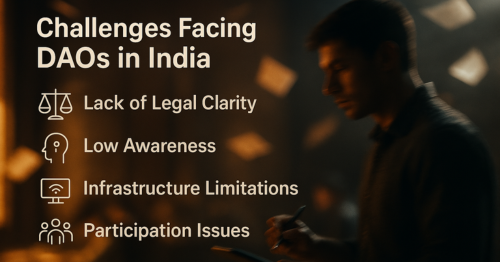
Lack of Legal Clarity
India does not yet legally recognize DAOs. This creates operational issues for teams looking to comply with tax laws, register their organization, or handle fiat currency.
Low Awareness
Outside tech circles, knowledge of DAOs is minimal. Many still don’t know what a DAO is or how to participate. This educational gap is one of the biggest barriers.
Infrastructure Limitations
In many parts of India, internet access is limited. This digital divide prevents equal participation in DAO ecosystems, even when interest exists.
Participation Issues
DAOs work best when community engagement is high. But in India, where financial literacy and civic participation are still growing, driving active involvement in governance can be a challenge.
These barriers make What Is DAO not just a technical question, but also a social and policy one.
Real-World DAO Use Cases in India
The answer to What Is DAO becomes clearer when you examine projects already making an impact.
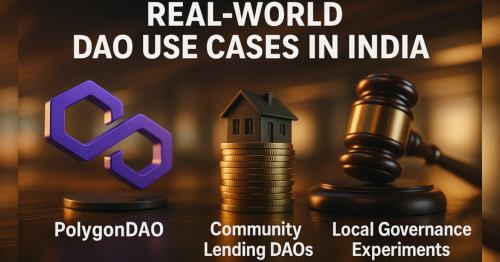
PolygonDAO
India’s own Polygon Network launched PolygonDAO to support Web3 builders, offer grants, and grow the ecosystem. This DAO is run by the community and shows how Indian innovation is shaping global decentralization.
Community Lending DAOs
Inspired by traditional Indian self-help groups (SHGs), some pilot projects are using DAOs to manage microloans, where borrowers and lenders vote on how to allocate funds.
Local Governance Experiments
In areas with poor civic engagement, DAOs are being tested for managing school budgets or village development initiatives. Voters use mobile apps linked to the blockchain to participate.
Founders and History of DAO
To fully grasp What Is DAO, one must explore its origins. The first DAO was launched in 2016 by a German team called Slock.it on Ethereum. Known simply as “The DAO,” it aimed to function like a decentralized venture capital fund.
Unfortunately, a major security flaw allowed hackers to drain over $60 million, which led to a controversial Ethereum hard fork and the birth of Ethereum Classic.
Since then, the DAO model has matured. MakerDAO, founded in 2015 by Rune Christensen, proved that decentralized governance could work with careful planning and code audits. Other platforms like Aragon and DAOstack also emerged, offering tools to launch DAOs easily.
In India, the story of What Is DAO gained attention through the success of Polygon. Co-founded by Jaynti Kanani, Sandeep Nailwal, and Anurag Arjun, Polygon’s scaling solutions made DAOs more affordable and efficient, positioning India as a DAO innovation hub.
How to Join or Create a DAO in India
If you’re wondering What Is DAO and how to get involved in India, here are your next steps:
To Join a DAO:
- Install a crypto wallet such as MetaMask.
- Buy governance tokens on Indian exchanges like CoinDCX or WazirX.
- Join DAO communities on Telegram, Discord, or Snapshot.
- Start voting on proposals or contribute to projects directly.
To Create a DAO:
- Define your mission and governance model.
- Use platforms like Aragon, Juicebox, or DAOhaus to deploy your DAO.
- Build a community on social platforms.
- Ensure legal compliance, possibly by registering a legal entity like an LLP or Section 8 company.
Creating a DAO requires technical, legal, and community-building expertise. But with India’s massive developer base, it’s more possible than ever.
Legal Framework and the Future
Currently, Indian law does not explicitly cover DAOs. However, with growing interest from the Ministry of Electronics and Information Technology (MeitY) and NITI Aayog’s blockchain initiatives, regulatory clarity may improve in the near future.
Founders are taking proactive steps by registering traditional entities while running DAO governance on-chain. Until formal laws are introduced, this hybrid approach offers the safest path forward.
The future of DAOs in India is intertwined with the country’s larger blockchain journey. As digital public goods, e-governance systems, and DeFi projects gain traction, DAOs could redefine how India manages governance and collaboration.
Final Thoughts
What Is DAO is more than just a trending search phrase in India. It represents a transformational shift in how organizations are structured and governed in a decentralized world. As India leads in tech innovation and startup growth, DAOs offer a unique model to build trust, transparency, and community ownership.
From rural development to urban innovation, from youth participation to global Web3 ventures, the DAO model could become a foundational tool for India’s digital future. Now is the time to explore, participate, and innovate.

I work as a content writer in the blockchain and cryptocurrency domain. I have a keen interest in exploring the world of digital assets, Web3, and emerging crypto technologies. My goal is to provide readers with easy-to-understand, engaging, and trustworthy insights, helping them stay informed and confident in the rapidly evolving world of crypto and blockchain.

